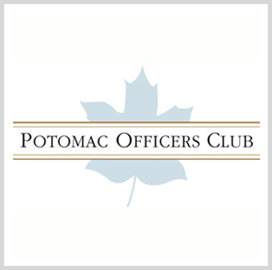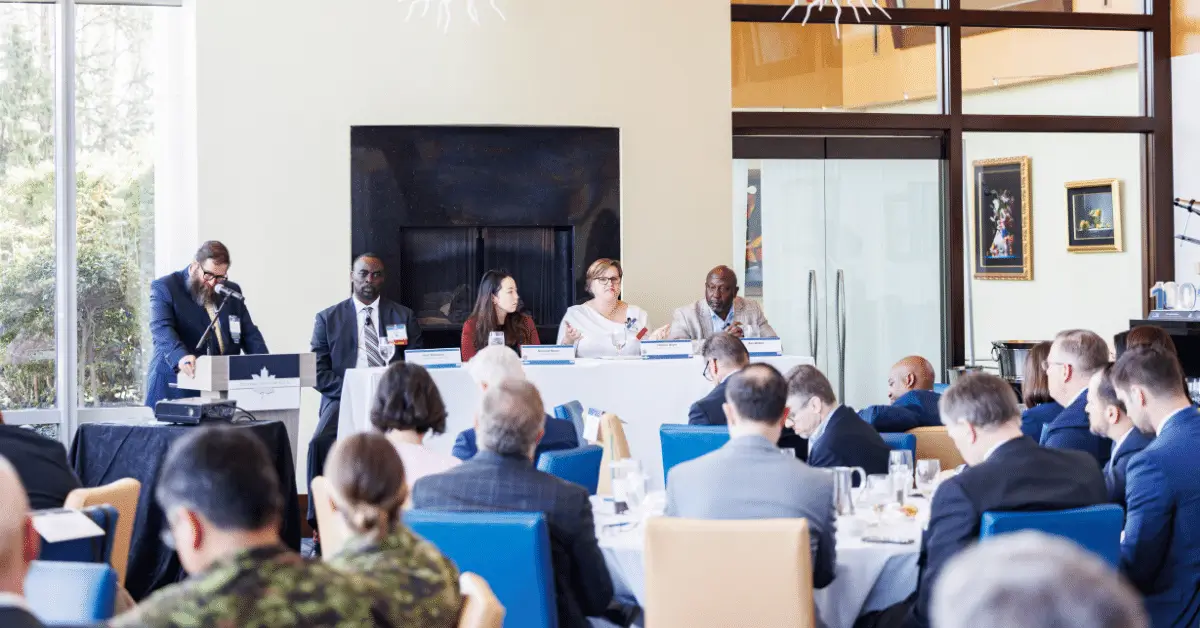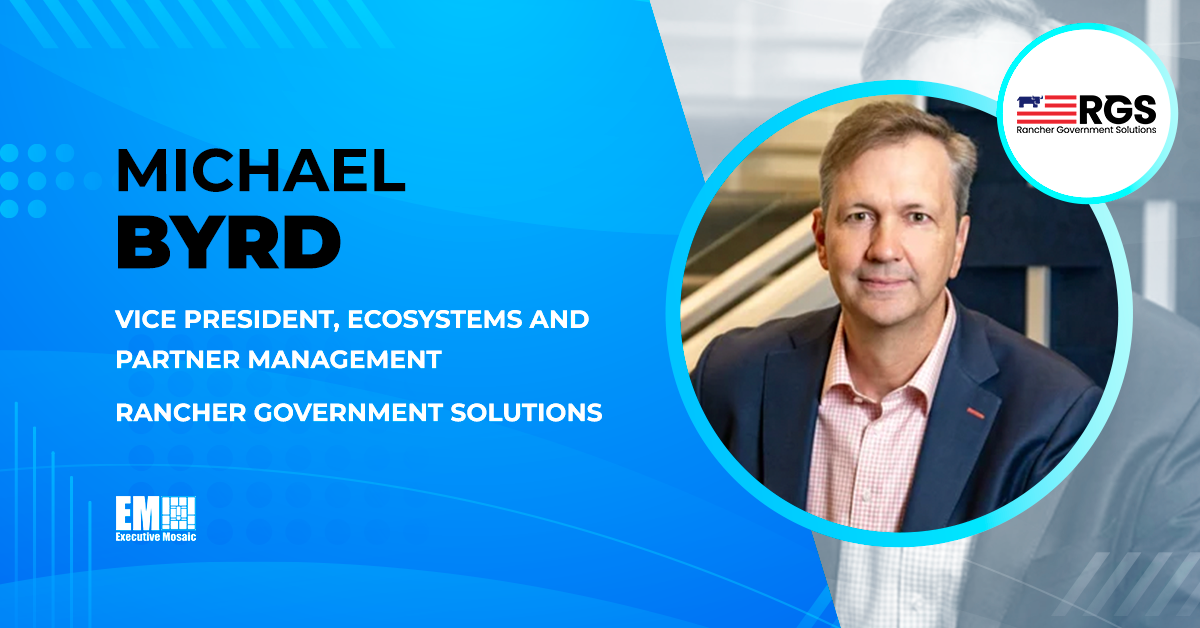On Wednesday, Potomac Officers Club (POC) hosted its latest virtual event, Secure IT Modernization in Today’s Environment, featuring a keynote address from Michael Mestrovich, principal deputy chief information officer (CIO) for the U.S. Department of State, and a full expert panel to discuss how federal agencies can adapt and evolve quickly in a crisis such as the COVID-19 pandemic and ensure global accessibility and connectivity of our information technology capabilities are available.
If you missed the event, you can still register to watch the footage in Potomac Officers Club’s Event Archive.

Following the opening keynote address from Mestrovich, the expert panel took the stage with Tom Afferton, vice president of the Defense and Intelligence Business Unit with Northrop Grumman Defense Systems, serving as the moderator.

Afferton provided a brief introduction for Paul Girardi of AT&T, Susie Adams of the Microsoft Corporation, Red Hat’s David Egts, Mike Hanley with Cisco Systems and Zecharia Kahn of the U.S. Agency for International Development (USAID), who served as panelists for the event.
With the impact of COVID-19 still heavily influencing the federal market, Afferton started the expert panel discussion by asking each panelist how they’ve been able to adapt to the situation in 2020. Zecharia Kahn admitted, as he led off the discussion, USAID has had the technology as well as the ability to move its entire workforce to adopt teleworking practices for a long time.
In fact, all panelists mentioned that each of their organizations either possessed the telework capabilities before COVID-19 hit the US, or the vast majority of the company’s workforce was already working across the globe or from home. As a result, the panelists were able to dive into some of the particularly unique challenges they faced and the necessity of adopting the tech as fast as possible.

For instance, Khan noted that the acceleration of the technology and adoption of telework has been one of the positive steps forward under the circumstances. Khan also noted the bigger challenges have been from an international standpoint. In order to maintain supply chains and handle the logistics to ship items across the globe has been a unique challenge for Khan and USAID to handle as well.
During the panel, Khan also touched on the concept of the “touchless workplace.” He explained that our tech capabilities give us a certain amount of personal security, but whenever we are able to return to the office. That issue will come to ahead eventually as well as our personal space and smaller issues in a work environment that we weren’t concerned with at the start of the year.

When Afferton brought the topic of 5G to the conversation, AT&T’s Paul Girardi was the popular choice to take the lead on the question given the company’s heavy involvement in the technology, which Girardi claims has “tremendous potential.” The company continues to accelerate the rollout of 5G capabilities.
Girardi also emphasized the development of virtual technology capabilities, especially during a time when we don’t have the opportunity to go to sporting events or other activities we enjoy, but we can imagine going virtually to a baseball stadium to see a game in near future. He explained that 5G could be a huge enabler to change the way our society functions in a post-COVID world.

Susie Adams of Microsoft explained that 5G is very exciting because it opens up the possibilities for the internet of things (IoT) and artificial intelligence, which Adams explained is really about data collection, storage and analyzing it as well.
“The increased bandwidth capabilities that 5G gives us to collect data on the edge and other sources to get that data to the cloud and be able to take the analytics pieces and even get them back to the edge device would provide us with real-time analytics and behavior data to make important decisions faster is going to be significant,” Adams explained.
Following Adams’ comments on 5G capabilities, Afferton referred back to the opening keynote address from Michael Mestrovich of the Department of State who mentioned that he had to accelerate applications. Afferton mentioned software factories and asked the panel to talk about the challenge from a security standpoint, the securing environments and the authority to operate.
In response, David Egts of Red Hat joked that in DevOps and SecOps, security can come in and “pour cold water over the whole thing.” Egts explained that, “You want security to have a seat at the table from the start in order to help with the best practices and avoid issues at the bitter end.”
Zecharia Kahn elaborated on Egts’ point by adding that the two moves that the USAID has made in this area is to embed security, as mentioned above, into the development process at the start and the second thing is to understand that the entire process is on a risk-management model.

Cisco Systems‘ Mike Hanley added that he thinks a great deal about safety in application development. He insisted that developers are provided a great deal of freedom to explore emerging technology in the federal market and industry.
However, he mentioned that if we go back to recent data breach reports, the number of breaches that are made through miscalculation and human error has never been higher. Hanley wonders about the balance between innovation and setting up the right operational guardrails to provide protection when any technology is available.
“How do we ensure that people are deploying things that are safe and are our minimum baseline standards to be able to continuously monitor that state,” Hanley asked.
As the conversation moved towards adapting to the new normal, Afferton asked the panel if there are ways of improving and raising the bar. Egts took the opportunity to discuss the reality of the current situation that we’ve all suffered from a taste of social isolation, which fuels uncertainty in our contributions and state of mind.

As a result, Egts argues that people overwhelm themselves all too often and that is one of the main challenges that we’re all dealing with during this time. As we look to the future and a post-COVID world full of challenges, Egts expressed his excitement about the efficiencies that we’re starting to see with people working from home.
He elaborated that events have now gone virtual. Customer interaction has also provided us the opportunity to reach out to more people, be more productive and the requirement to travel is mostly a thing of the past. “Normalizing team collaboration and virtual capabilities is extremely exciting for our future,” said Egts.

If you missed the event, you can still register to watch the footage in Potomac Officers Club’s Event Archive.
Potomac Officers Club will host its 2020 Navy Forum on September 30th. Click here to register for the event. James Geurts, Assistant Secretary for Research, Development, and Acquisition with the U.S. Navy and 2020 Wash100 Award recipient will serve as a keynote speaker during the event.

Assistant Secretary for R&D for the US Navy
Acquisition for U.S. Navy
Geurts will discuss how the U.S. Navy has continually worked to decentralize, differentialize and digitize the service branch’s work as well as develop its talent in the field.
The Navy has also accelerated acquisition channels, modernized emerging technologies and increased research and development to become more effective in warfare. As the Navy continues to evolve to meet the growing demands, challenges still remain.
Join Potomac Officers Club’s 2020 Navy Forum to hear notable industry and federal leaders discuss the initiatives, efficiencies and challenges the service branch faces as well as how to join together to improve the future of warfare.
Click here to register for the 2020 Navy Forum.






